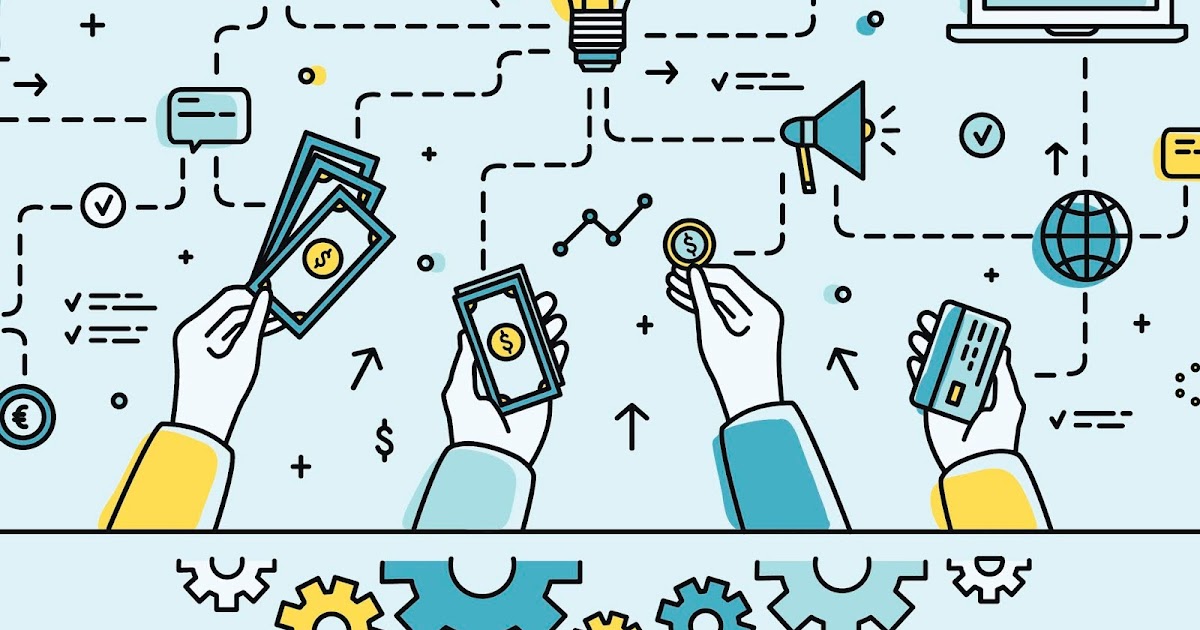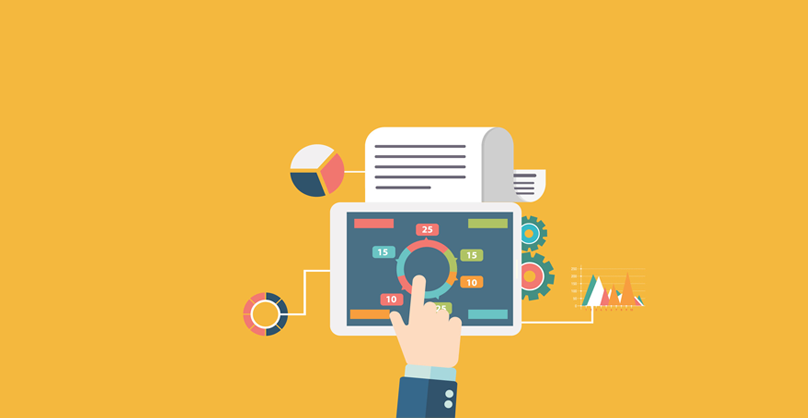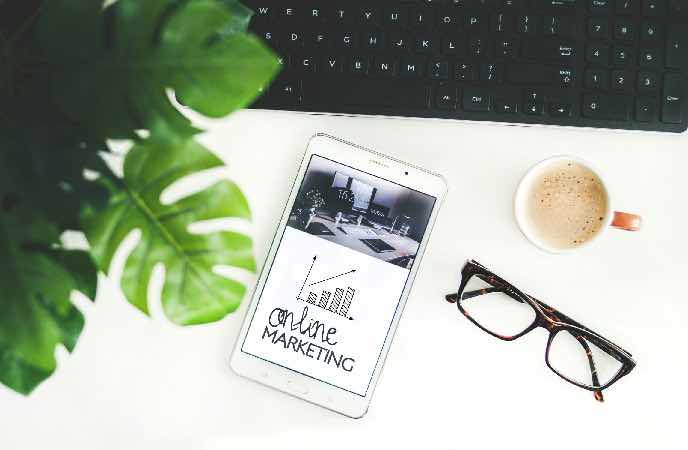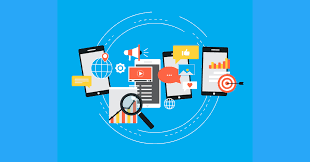Hello!
If you own or manage an ecommerce company, you’re probably aware that the competition is pretty fierce, which is why strategic and aggressive marketing is crucial to stay afloat.
 Unfortunately, most of the basic ecommerce marketing tactics take a lot of time to learn and perfect. And when you have other essential duties to manage, dedicating the right amount of effort to your ecommerce marketing may not be possible.
Unfortunately, most of the basic ecommerce marketing tactics take a lot of time to learn and perfect. And when you have other essential duties to manage, dedicating the right amount of effort to your ecommerce marketing may not be possible.
But don’t bury your head in the sand just yet. There is a way to kick your marketing into high gear without you having to drain all your own time: hire an ecommerce marketing agency.
Now, you might be thinking, “Hiring an agency is too expensive.” But that’s just not true. Any ecommerce marketing agency worth its salt will be able to pay for itself and then some by reaping untapped revenue from PPC campaigns, SEO, email marketing campaigns, and more.
In this post, we’ll outline some of the best reasons to partner with an ecommerce marketing agency, including making more money than you spend.
Top 7 Reasons to Hire an Ecommerce Marketing Agency
1. PPC Management Experience
 Without prior experience, the mere idea of setting up and managing paid campaigns can be a scary notion.
Without prior experience, the mere idea of setting up and managing paid campaigns can be a scary notion.
After all, it’s more than just writing some copy and handing your credit card over to Google. In reality, a successful PPC campaign requires lots of thought and scrutiny—even after the ads are set up.
Hiring an ecommerce marketing agency to handle your PPC campaigns will save you a lot of time and agony (not to mention money).
This is because they have already managed thousands of campaigns just like yours, and they know how to set up, adjust, and budget your ads so that they bring in the most bang for your buck.
However, it’s important to note the distinction between an ecommerce marketing agency and just any old marketing agency. If the agency you’re interested in has no prior experience working with ecommerce companies, it may be a red flag.
Even if they’ve helped dozens of tech companies achieve their goals, that’s a whole different beast. For example, an agency without ecommerce experience might know how to setup and manage Google Shopping campaigns correctly.
 You need an agency that has already worked with other ecommerce clients so that you don’t have to be the guinea pig.
You need an agency that has already worked with other ecommerce clients so that you don’t have to be the guinea pig.
In addition to the ability to write compelling copy that entices users to click on your ad when they see it in search results, the agency should also be able to create a high-quality landing page that matches your ad.
Be sure to ask for testimonials or case studies from their other ecommerce company success stories.
2. An Understanding of Creative Design
Another perk of hiring an ecommerce marketing agency is that they often have a team of designers that can work with you to create custom creatives that match your brand theme and standards. High-quality design is the key to making your company stand out and look good to consumers—especially if they’ve never heard of your brand before. Plus, an experienced designer will know which types of creatives work and don’t work, saving you from cumbersome redesigns.
 For example, if you were running an ad on Facebook, you’d want to use bright colors that attract people’s attention. While a simple, black and white ad may look sophisticated, people will most likely scroll right by it without even realizing it’s there.
For example, if you were running an ad on Facebook, you’d want to use bright colors that attract people’s attention. While a simple, black and white ad may look sophisticated, people will most likely scroll right by it without even realizing it’s there.
A good ecommerce marketing agency will be able to showcase your products in a well-designed, alluring creative that attracts new business and brand followers.
An ecommerce marketing agency will also be familiar with a variety of design types and formats. For example:
Retargeting Ads: These types of ads can be used on various ad platforms. They are displayed to consumers who have already shown an interest in your product, which should be reflected in the copy and design.
Retargeting ads should introduce a sense of urgency and convince people to follow through with their purchases before they miss out.
Display Ads: Display ads are banner ads that are shown on the display network of the advertising platform you use. For example, the Google Display Network. Because consumers often ignore these types of ads, it’s important that they use click-worthy images and copy to attract attention.
Facebook Ads:
- Carousel: Similar to a gallery, these ads are made up of up to 10 slides with separate copy and images or video. These types of ads are ideal for showcasing multiple products or different versions of the same product.
- Single Image: These 1200×628 pixel ads are the probably the ones with which you’re most familiar. They use just one image, which should be both click-worthy and capture the essence of your offer.
- Video: Video ads are known for their ability to drive engagement. Videos can be up to 120 minutes—though videos under one minute perform best.
- Slideshow: Unlike carousel ads where users click through the images on their own, slideshow ads play more like video.
- Canvas: Canvas ads are immersive video or image ads that display in full-screen. These ads are only for mobile devices.
Aside from the visual aspect of your creatives, it’s also important to have well-written copy. While the image is what gets people to stop and take notice, the copy is what convinces them to click through to your website and make a purchase.
Be sure to hire an agency with a content team that writes concise, engaging copy that also clearly defines the product you’re selling.
3. Facebook Marketing Knowledge
 There are a variety of perks to advertising with Facebook, particularly since an ecommerce company. For starters, billions of active consumers can be targeted by anything from their age to what kind of car they own.
There are a variety of perks to advertising with Facebook, particularly since an ecommerce company. For starters, billions of active consumers can be targeted by anything from their age to what kind of car they own.
In fact, the targeting features in Facebook are so accurate that it’s a bit mind-blowing once you really start to comb through them.
But while Facebook can be an incredibly lucrative marketing tool, you may not see much benefit from it without the help of an expert.
With so many active users on Facebook, it can be difficult to narrow down your audience to only those who will be most interested in your product. An ecommerce marketing agency will be able to use your sales data to determine common demographics, interests, and behaviors that they can use to target new consumers.
They’ll also be able to set up a Pixel on your site so that you can run retargeting campaigns.
Retargeting campaigns display ads to consumers who have already visited your site and shown an interest in your products. This is a highly beneficial tactic since it helps you close sales that you may have otherwise missed.
 One fatal mistake that many newbie Facebook marketers make is setting up their ads and then just letting it roll for a couple of weeks before checking in.
One fatal mistake that many newbie Facebook marketers make is setting up their ads and then just letting it roll for a couple of weeks before checking in.
An experienced ecommerce marketing agency will never leave your campaigns unattended. Instead, they will monitor them on a daily basis, adjusting your ads and budget when needed.
Plus, they’ll run A/B tests with Facebook’s many different ad formats to see which types of ads get the most conversions for your business.
4. SEO Expertise
In order to improve the authority of your site and increase your ranking in search results, you need to have a solid SEO (Search Engine Optimization) strategy in place.
The higher you rank in search results, the more organic traffic you’ll receive. A quality ecommerce marketing agency will be able to improve your on-page and off-page SEO through extensive keyword research, backlinking, site structure, and more.
Some standard SEO elements and tactics:
- Keyword Research: The keywords you choose to target should be longtail keywords (three or more words) that are relevant to your content. You should also aim for keywords with a decent monthly search volume and low to medium competition. In general, it’s much harder to rank for keywords with high competition.
- Keyword Optimization: Keywords are just for sprinkling into blog posts. You should include keywords in alt tags, meta descriptions, page titles, headers and subheadings, site copy, product descriptions and names, image names, and URLs.
- Site Speed: Site speed also has an effect on SEO. This is because if your site is too slow to load (more than three seconds), visitors will quickly bounce off your page and click on a different search result. You can improve site speed by switching to a different, more powerful CMS (HubSpot, for example), or by reducing the images and files on your site.
- Site Errors: Check for broken links, duplicate content, and 404 error pages since these can negatively affect your site’s SEO value as well.
- Site Structure: Because of the many products, ecommerce sites are known for being a little unwieldy. However, a poorly structured site that’s hard to navigate both for visitors and search engines can negatively impact your SEO.
- Link Building: Building external links back to your site can help boost your search value—but only when done correctly. Blackhat practices, such as spam comments, will do the exact opposite. If you do choose to post on another blog or forum, you should focus on contributing something of value to the conversation. Don’t just paste your link and click post. In fact, most sites ask for your web address in your user profile, so you don’t even have to include a link at all. You can also build links by contributing content on other sites (so long as it includes a link from your site).
If you decide to hire an ecommerce marketing agency, they will take the majority of these responsibilities off your plate. Plus, you won’t have to worry about improper execution (which could potentially harm your SEO value).
Choose an agency that has prior experience with SEO for ecommerce and be sure to ask them to provide specific examples of how they were able to achieve prolonged improvements.
5. Professional-Level Content Marketing
 Content is one of the most crucial elements of an ecommerce marketing plan, and yet many companies don’t put half the effort into it that they should—especially since it can be difficult to keep up with new posts and video that appeal to your target market.
Content is one of the most crucial elements of an ecommerce marketing plan, and yet many companies don’t put half the effort into it that they should—especially since it can be difficult to keep up with new posts and video that appeal to your target market.
This is where an ecommerce marketing agency with a talented content marketing team really comes in handy.
Typically, your content marketing strategy should include blog content, videos, premium content (like informational ebooks and buyer guides) and a distribution and promotion strategy.
Ask you agency to provide you with a monthly content calendar that outlines when content drafts will be delivered, when final drafts will be published, and which platforms they’ll use to promote them.
 Before you begin creating content either on your own or with an agency, it’s important to determine a few things first:
Before you begin creating content either on your own or with an agency, it’s important to determine a few things first:
- What are my goals? The content you produce should have a specific, predetermined purpose. For example, you could produce content to build brand awareness, to increase conversions, to get new subscribers etc.
- Who are my customers? Create a buyer persona to help you get a better understanding of the demographics, interests, and behaviors of your target audience. This will help you to create content that they will enjoy.
- What does my average customer’s buyer journey look like? Most buyer’s journeys have three stages: problem, need, and want. In order to nurture leads through your funnel and get them to make a purchase, you need to have content that appeals to them at every stage of their journey.
- How often will we be publishing new content? Determine your goals for how much new content you’d like to produce each month. For example, you could start with two long-form blog posts and one piece of premium content. Monitor performance and adjust your strategy. Your content calendar will help you stay on top of your monthly goals.
- Where will we promote this content? Promotion is key. Without it, your content won’t get the traffic it needs in order to be effective. Decide where you want to promote your content, whether that be organic social media, paid advertising, a combination of the two, etc.
6. Email Marketing Expertise
While email has been around since the dark ages of the internet, it’s actually still a very useful marketing tool. In fact, consumers prefer to receive emails from companies over any other form of communication.
Plus, while email marketing costs hardly anything (aside from skilled copywriters and email automation platforms) it produces a significant ROI—about $38 for every dollar you invest.
Consumers check their email regularly for personal use and work, and mobile phones allow you to reach them at any time and place.
 But, because they receive so many emails per day, you need an email marketing team that knows how to craft emails that capture attention. Some important elements of email marketing include:
But, because they receive so many emails per day, you need an email marketing team that knows how to craft emails that capture attention. Some important elements of email marketing include:
- A captivating subject line. The subject line is the pickup line of your email. You don’t want to lead off with something lame like “November Newsletter.” Write something that will compel the viewer to click open and see what you have to say. One good way to do this is to create a sense of urgency that makes the consumer feel like they might miss out on something great if they don’t have a look. For example, “Hurry!” “Last Chance,” and “Today Only!”
- Engaging body content. Once you’ve got the consumer inside the email, your goal is to keep them there long enough to discover your offer and click through to your website. Be sure that the content is entertaining while still being relevant to your target audience. For example, puns might work well for a toy company, but a law firm may want to use a more authoritative tone.
- An attractive design. If your email design looks boring or unprofessional, you may cause a lot of people to ignore your offer or even unsubscribe from future communication. Create a template that is attractive and reflects your brand. Just be careful not to get too fancy with it—certain servers may block emails with large image files or videos.
- Segmented contacts. While it may be easier to create one mass email and just hit send, it’s not the best method for email marketing. Instead, you should have segmented contacts lists for different emails. This way, you can ensure that your subscribers only receive emails that they’ll find most relevant and enticing.
- Personalized and automated emails. You can easily personalize your emails by adding a contact’s first name to the subject line or body content. Something as simple as this can actually help increase open rates. Additionally, sending automated emails can help you maintain regular communication. For example, you could set up an automated thank you email for people who make a purchase. You could also send out abandoned cart reminders when a consumer has left an item in their cart for a few days.
- A clear CTA. It’s important that the email recipient is never left wondering what action they’re supposed to take after reading your email. In addition to clearly stating your call-to-action in the body content, you should also have a CTA button. Hyperlinking your header is also a useful practice.
- Non-promotional emails. Not every email you send needs to be a purely promotional message. For example, you could offer your subscribers free content, such as buyer guides or ebooks. While this type of content doesn’t explicitly advertise your products, it does help the consumer see you as an industry expert.
 An ecommerce agency will be able to help you make the most out of email marketing by creating compelling marketing emails that engage your subscribers and lead them toward conversion.
An ecommerce agency will be able to help you make the most out of email marketing by creating compelling marketing emails that engage your subscribers and lead them toward conversion.
They’ll also be able to setup automated workflows that send specific behavior-triggered emails at different buyer stages.
7. It Can Actually Save You Money
Because an ecommerce marketing agency has a wealth of knowledge and experience in the areas outlined in this post, there is less room for error and wasted ad spend—whereas handling marketing responsibilities on your own requires a steep learning curve that can eat up your budget.
In fact, the purpose of hiring an agency is that their efforts will pay for the investment.
Also read:
- All You Need to Know Before Conducting Business Internationally
- Brothel Manager Reveals the Exact Time Men Typically Cheat on Their Partners
- 8 AdWords Management Agency Red Flags to Watch Out For
Final Takeaways…
 Trying to take on the many marketing responsibilities for your ecommerce company in addition to your other business-crucial duties can result in watered-down efforts with little to no benefit.
Trying to take on the many marketing responsibilities for your ecommerce company in addition to your other business-crucial duties can result in watered-down efforts with little to no benefit.
By hiring an ecommerce marketing agency, you can be sure that all the items outlined in this post are competently managed.
Thank you!
Join us on social media!
See you!






